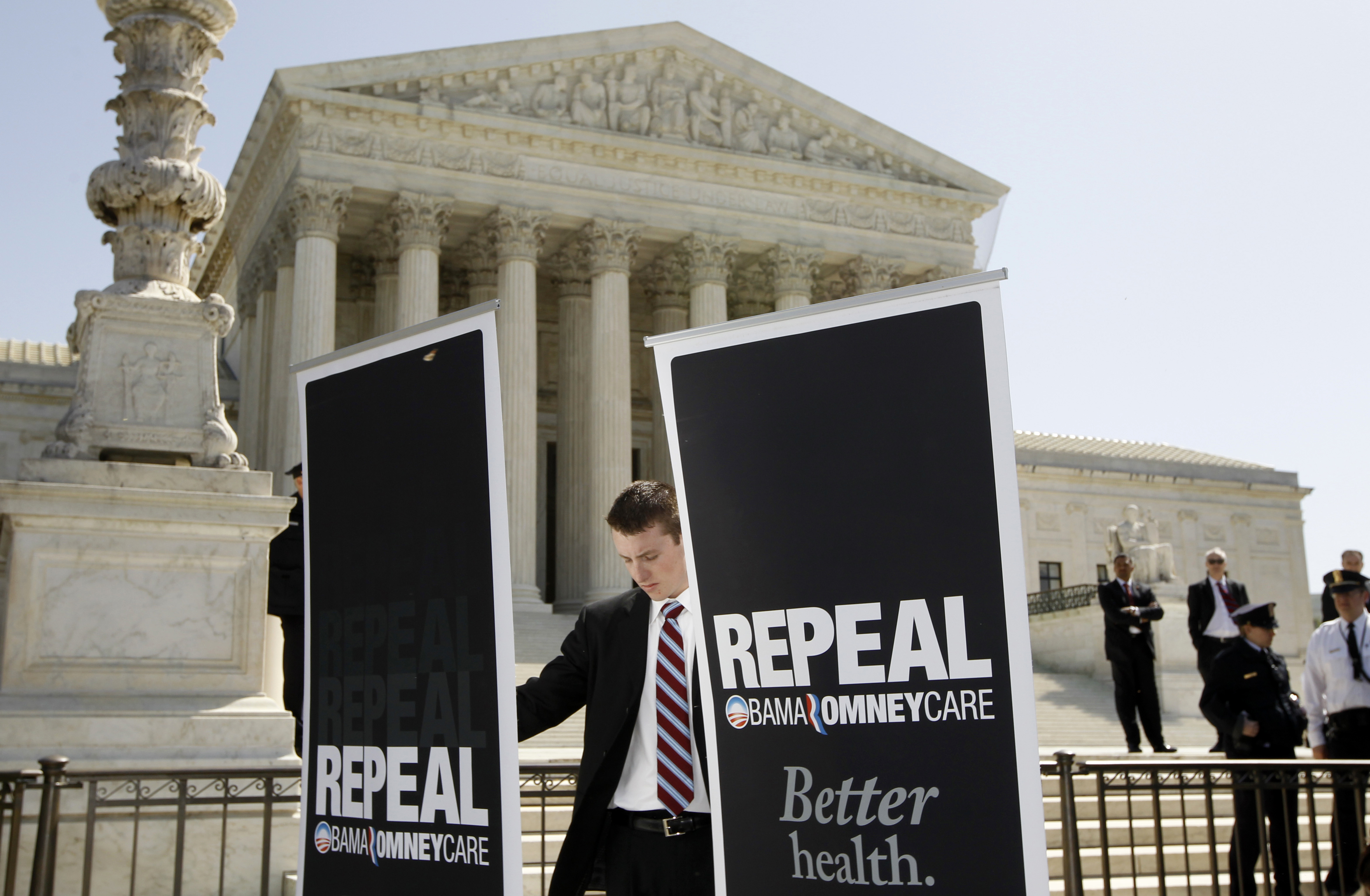WASHINGTON - As President Barack Obama and his allies gear up to defend the landmark health care law he signed two years ago, they confront an unforgiving math problem: Just a tiny fraction of Americans has experienced a major benefit from the law.
At the same time, tens of millions have continued to see insurance premiums and medical bills rise as they did before the legislation was signed.
That reflects the design of the complex law, which delayed many key provisions in a bid to hold down costs and minimize disruptions while new systems are put in place to expand coverage. The law will not guarantee insurance to all Americans until 2014, and may take many more years to rein in health care costs.
But the president and congressional Democrats nonetheless had hoped that a handful of early benefits - such as allowing adult children to remain on their parents' health plans until age 26 - would rally the public behind the law by now.
That hasn't happened, surveys indicate.
"The law is still not real for the vast majority of Americans," said Mollyann Brodie, polling director for the nonprofit Kaiser Family Foundation.
Two-thirds of Americans say they haven't been personally affected by the law, according to the latest Kaiser tracking poll. By contrast, just one in seven say they have experienced something positive from the law.
Even more ominously for the president and supporters of the law, few people have much confidence the law will ever help them. Sixty-seven percent say they believe the law will leave them worse off or won't make much of a difference, the Kaiser survey indicates. Just a quarter believe it will improve their lives.
In the 2010 midterm elections, Republicans exploited this public skepticism to win control of the House. This year, GOP presidential candidates have once again made repealing the law a centerpiece of their campaigns.
But Republicans could have a harder time winning the health care debate in 2012.
Most Americans prefer to leave the law alone or modify it rather than throw it out entirely, surveys show. At the same time, the GOP - including former Massachusetts Gov. Mitt Romney, the front-runner for the presidential nomination - has embraced controversial proposals largely to privatize Medicare by giving seniors vouchers to shop for commercial insurance.
That has buoyed Democrats, who are already campaigning in defense of Medicare, a government health program that remains highly popular with seniors.
But the White House and its allies also are trying to find ways to convince Americans that the health care law will deliver important benefits. That strategy will highlight personal stories from people who have already been helped.
These are people like Sonji Wilkes of Colorado, whose family twice lost health insurance because the cost of medication for her son with hemophilia hit lifetime caps on coverage. Such caps were commonplace before they were banned by the law.
"We were so relieved when the Affordable Care Act passed because it meant we could care for our child," said Wilkes, who is participating in a "Thanks Obamacare" project organized by liberal activists in Colorado.
But even supporters of the law acknowledge that winning over the rest of the country is a long-term project.
"I'm confident the Affordable Care Act will be an extraordinarily popular piece of legislation such that the term 'Obamacare' will be a badge of distinction," said Families USA executive director Ron Pollack, a leading consumer advocate. "But that will take time. ... It will not all happen by November."
But many protections - including bans on co-pays for preventive services such as cancer screenings and physicals - have a relatively small impact on most Americans' checkbooks.
Others - such as new regulations requiring insurers to spend more of their customers' premiums on medical care rather than administrative expenses - are little understood by consumers.
And some of the law's most important provisions - including new initiatives to improve the quality of medical care and to control costs - will likely take years to bear fruit. Many health care experts believe these efforts are critically important.
They could not be put in place quickly, however. Nor could a huge expansion of insurance coverage that requires sweeping changes on the state and federal levels.
"Implementing additional benefits before they could be cost-effectively administered would have backfired," warned Chris Jennings, a health care consultant who was a top Clinton administration health care aide.
